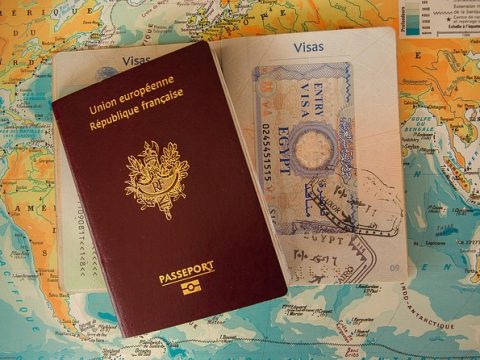
Pursuing higher education abroad is a dream for many students, but tuition fees, accommodation, and living expenses can be daunting. Scholarships provide a vital pathway for students to access world-class education without financial stress. Whether you are looking for undergraduate, master’s, or PhD programs, finding the right scholarship can be the key to turning your academic dreams into reality.
This guide will explain how to find scholarships for all levels of study, the types of scholarships available, and strategies to maximize your chances of success in 2025.
Why Finding the Right Scholarship Matters
Scholarships are not just about financial support; they are also recognition of your academic potential, leadership qualities, and research capabilities. The right scholarship can:
- Cover tuition, accommodation, and living expenses
- Provide opportunities to study at top universities worldwide
- Enhance your CV and career prospects
- Connect you with global peers, mentors, and research networks
Types of Scholarships for Different Levels of Study
| Level of Study | Scholarship Focus | Examples of Scholarships |
|---|---|---|
| Undergraduate | Merit-based, need-based, country-specific | Fulbright Undergraduate Program, New Zealand International Undergraduate Scholarship, Chinese Government Scholarships |
| Masters | Merit-based, leadership, field-specific, fully funded | Chevening Scholarships (UK), Erasmus Mundus Joint Master’s, Australia Awards Scholarships |
| PhD / Research | Academic excellence, research-focused, institutional scholarships | Vanier Canada Graduate Scholarships, DAAD Research Scholarships (Germany), MEXT Doctoral Scholarships (Japan) |
Understanding the types of scholarships available for each level helps you target your search effectively.
Step-by-Step Guide to Finding Scholarships
1. Identify Your Study Goals
Before searching for scholarships, define:
- Your preferred country and university
- Your field of study
- Level of study: undergraduate, master’s, or PhD
This helps narrow down scholarships that are relevant and aligned with your academic and career objectives.
2. Use Scholarship Search Platforms
Several online platforms aggregate scholarships from around the world. Key platforms include:
- Scholarships.com – Comprehensive database for undergraduate and graduate scholarships.
- DAAD Scholarship Database – Focused on Germany, with opportunities for masters and doctoral studies.
- Erasmus Mundus Catalogue – Lists joint master’s programs across Europe.
- ScholarshipPortal – European scholarships for all levels of study.
- StudyAbroad.com – Offers a curated list of scholarships worldwide.
3. Check University and Government Websites
Many universities and governments offer scholarships for international students. Steps include:
- Visit the official university website and navigate to the “International Students” or “Scholarships” section.
- Look for government-funded scholarships, e.g., Fulbright (USA), Chevening (UK), MEXT (Japan), Australia Awards.
- Check eligibility criteria and deadlines carefully.
4. Consider Private Organizations and Foundations
Private organizations, NGOs, and foundations also fund scholarships:
- Rotary Foundation Scholarships – Leadership-focused scholarships for graduate students.
- Ford Foundation – Supports students in specific regions and research fields.
- Jointly funded scholarships – Often available through partnerships between universities and corporations.
5. Utilize Social Media and Forums
Social media platforms like LinkedIn, Facebook, and Reddit often have scholarship groups where students share opportunities and experiences. Tips include:
- Follow scholarship pages and official university social media accounts.
- Join student groups focused on scholarships and study abroad programs.
6. Network and Seek Mentorship
Mentors, professors, and previous scholarship recipients can provide guidance and recommend opportunities:
- Ask faculty members if they know of research or institutional scholarships.
- Attend online webinars and workshops hosted by scholarship providers.
- Connect with alumni of scholarship programs for tips on the application process.
Tips to Maximize Scholarship Search and Success
- Start Early – Begin your search 9–12 months before your intended start date.
- Track Deadlines – Use spreadsheets to monitor submission dates and requirements.
- Prepare Strong Documents – Academic transcripts, recommendation letters, CVs, personal statements, and research proposals are essential.
- Tailor Each Application – Customize your personal statement and supporting documents for each scholarship.
- Apply to Multiple Scholarships – Increases your chances of winning a scholarship.
- Stay Informed – Subscribe to newsletters or alerts from scholarship websites.
Table: Scholarship Search Checklist
| Task | Completed (✓/✗) | Notes |
|---|---|---|
| Define study goals (country, field, degree) | ||
| Search scholarship databases | ||
| Check university websites | ||
| Review government-funded scholarships | ||
| Research private foundations | ||
| Gather required documents | ||
| Tailor personal statements | ||
| Track deadlines | ||
| Apply to multiple scholarships | ||
| Follow up / attend interviews |
This checklist helps you stay organized and ensures that you don’t miss critical steps.
ALSO READ: Top 5 Mistakes to Avoid When Applying for Scholarships
FAQs on Finding Scholarships
1. Can I apply for scholarships for multiple countries at once?
Yes. You can apply to scholarships in different countries simultaneously, as long as you meet the eligibility criteria for each program.
2. Are there scholarships for students with low GPA?
Yes. Some scholarships are need-based or target students with exceptional talent, leadership, or community involvement rather than GPA alone.
3. How do I know which scholarships cover full expenses?
Scholarship descriptions usually specify coverage. Look for terms like “fully funded”, “tuition, accommodation, and living expenses included”.
4. Do I need work experience for graduate scholarships?
Some scholarships, such as Chevening (UK), require work experience, while others focus solely on academic achievements.
5. How can I increase my chances of winning a scholarship?
- Start early and research thoroughly
- Apply to multiple scholarships
- Submit strong, tailored personal statements
- Obtain compelling recommendation letters
- Highlight leadership, community service, or research achievements
Conclusion
Finding scholarships for undergraduate, master’s, or PhD programs may seem overwhelming, but with the right strategy, it becomes manageable. By defining your study goals, utilizing scholarship databases, checking university and government websites, networking, and applying strategically, you can maximize your chances of securing funding.
Scholarships not only reduce financial stress but also open doors to world-class education, global exposure, and long-term career opportunities. Begin your search today, stay organized, and take action to make your study abroad dreams a reality in 2025.





![FUTES-IYIN Cut Off Mark 2025/2026 is Out [All Courses] FUTES-IYIN Cut Off Mark 2025/2026 is Out [All Courses]](https://myeduplug.com/wp-content/uploads/2025/10/FUTES-IYIN-4.jpeg)
![FUADSI Cut Off Mark 2025/2026 is Out [All Courses] FUADSI Cut Off Mark 2025/2026 is Out [All Courses]](https://myeduplug.com/wp-content/uploads/2025/10/FUADSI-2.jpeg)
![BUK Cut Off Mark 2025/2026 [All Courses] BUK Cut Off Mark 2025/2026 [All Courses]](https://myeduplug.com/wp-content/uploads/2025/01/BUK.jpeg)
![UNIMAID Cut Off Mark 2025/2026 [All Courses] UNIMAID Cut Off Mark 2025/2026 [All Courses]](https://myeduplug.com/wp-content/uploads/2025/01/UNIMAID-1.jpeg)









